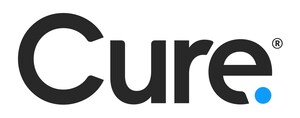Epilepsy Research Grants Awarded By CURE After Receiving Record-High Number Of Applications
Leading Nongovernmental Funder of Epilepsy Research Awards $450,000 in Grants in Early 2014
CHICAGO, Feb. 14, 2014 /PRNewswire-USNewswire/ -- After receiving a record-high 200 plus applications in 2013, Citizens United for Research in Epilepsy (CURE) is proud to announce its six research grant recipients for the Taking Flight and Innovator awards.
The surge in applications is credited to CURE's ongoing efforts to drive the epilepsy research agenda, funding innovative science not currently being explored by other institutions.
"This was the first year we were unable to fund all of the grants we would have liked to," said Dr. H. Steve White, research director for CURE. "The applications received in 2013 were extremely competitive and filled with state-of-the-art science that promises to advance our understanding of the forms of epilepsy."
Each year, the most promising grants are selected and funded on the basis of the scientific investigations proposed and the potential that the investigations will lead to a greater understanding of the forms of epilepsy and new therapies that could ultimately lead to a cure.
CURE congratulates the following six esteemed researchers.
Innovator Awards
One-year grants up to $50,000 in support of the exploration of a highly innovative new concept or untested theory that addresses an important problem relevant to epilepsy.
Fabio Benfenati, M.D.
The Italian Institute of Technology
An Innovative Strategy to Cure Drug-Resistant Epilepsy
Avtar Roopra, Ph.D.
University of Wisconsin-Madison
Opening a new arsenal of drugs in the fight against epilepsy in Tuberous Sclerosis Complex (TSC)
Senthil Sundaram, M.D.
Wayne State University
Identifying abnormal gene regulatory networks (GRN) of infantile spasms
Taking Flight Awards
One-year grants up to $100,000 to help promote the careers of young investigators and support them as they develop an independent research focus.
Ethan Goldberg, M.D., Ph.D.
The Children's Hospital of Philadelphia
A new method of treatment for temporal lobe epilepsy
Catherine Christian, Ph.D.
Stanford University
Using light to alter cellular activity and control absence seizures
Esther Krook-Magnuson, Ph.D.
University of California, Irvine
Working to identify a new target for intervention to inhibit temporal lobe seizures
For more information on the grantees, please visit http://www.cureepilepsy.org/research/2014grantees.asp.
Citizens United for Research in Epilepsy (CURE) is the leading nongovernmental agency fully committed to funding research in the epilepsies. CURE is at the forefront of epilepsy research, raising millions to fund innovative research and other initiatives that will lead the way to a cure. CURE's transformative research program has supported more than 160 brilliant scientists and labs in 13 countries. Since its inception in 1999, CURE has raised more than $26 million for research program activities. CURE invests more than 89% of its funds in its mission, among the highest percentage for charities nationwide.
Follow CURE on Facebook and Twitter @CUREepilepsy and Instagram
SOURCE CURE
WANT YOUR COMPANY'S NEWS FEATURED ON PRNEWSWIRE.COM?
Newsrooms &
Influencers
Digital Media
Outlets
Journalists
Opted In




Share this article